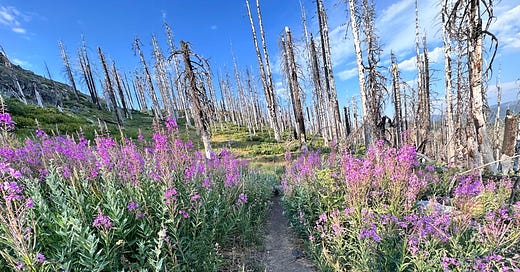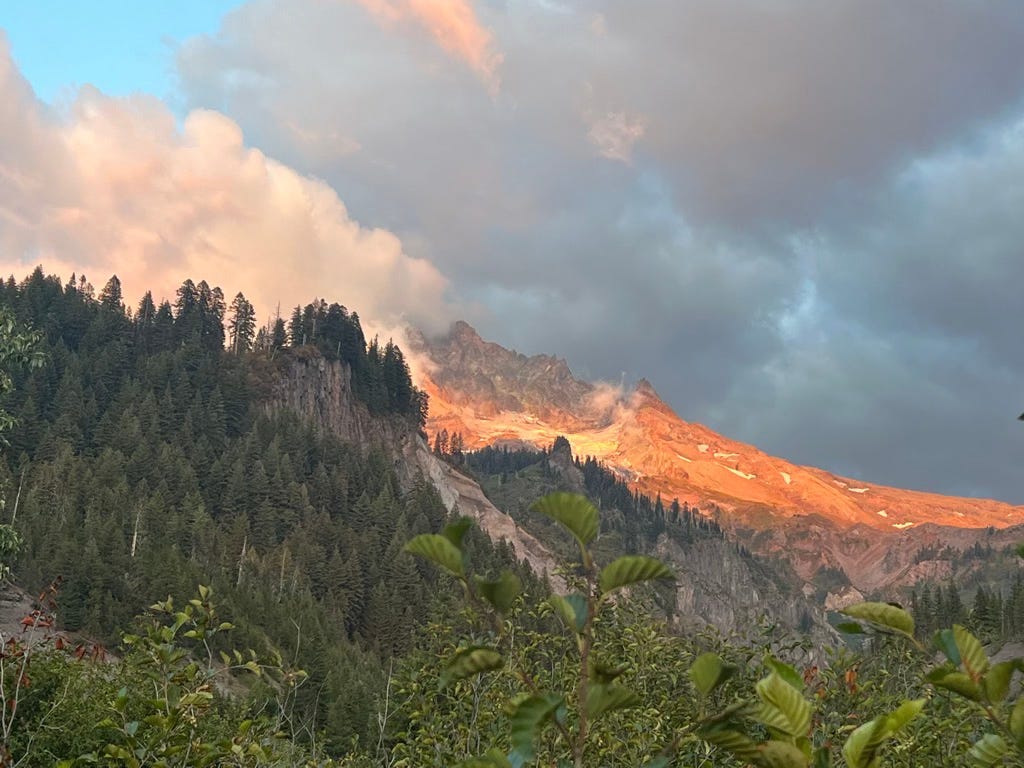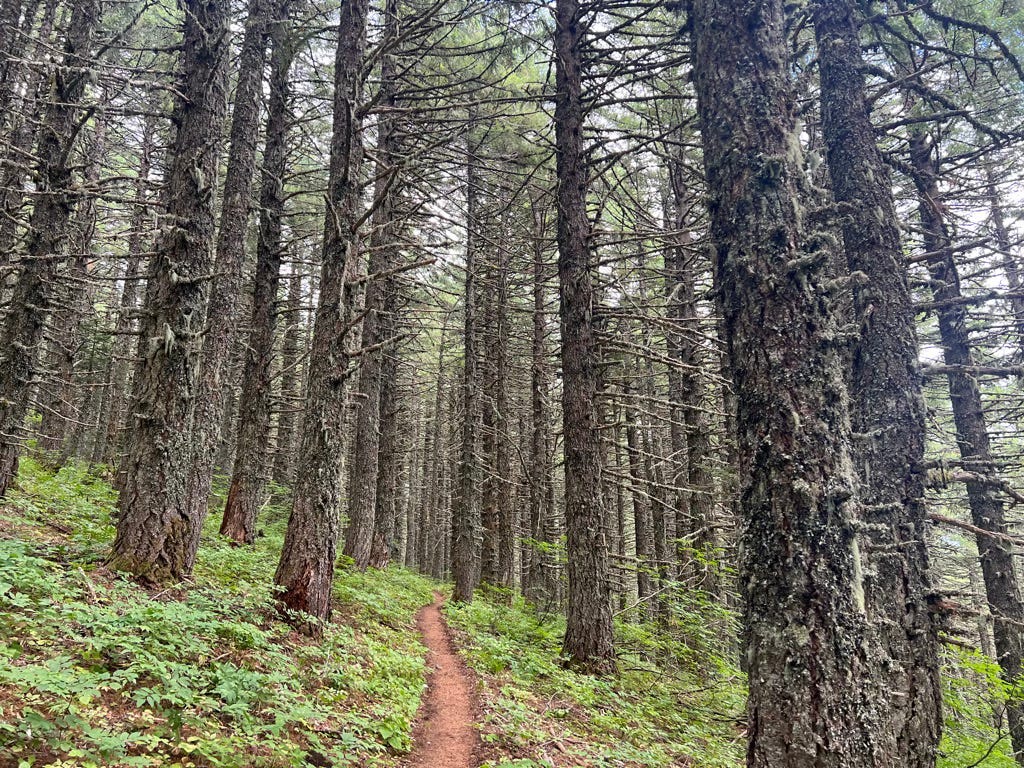Definitions of “to shed” -
To slough off as part of a normal process
To discard something undesirable, superfluous, or outdated
To allow skin or shell to come off - replaced by growth underneath
In spring of 2020 during the earliest stages of the covid-19 lockdown, I was one of those introverts truly enjoying the opportunity to stay close to home and explore the neighborhood. However, I soon started to feel like I was inside of a very fragile shell, and that the weight of the world was building up all around it, causing so many small fractures that it could collapse at any second. Covid started impacting friends and family, my already stressful job intensified, and soon I found myself clenching my jaw so hard overnight that my molars were cracking. Due to a combination of factors–including the sudden shift to virtual-only interactions, a slowly evolving work culture of burnout, and changes in my personal values–my job had started to feel oppressive. I found myself rejecting the pressure that once inspired me to perform; questioning the use of tactics and strategies I had once been praised for exercising.
I decided I needed to make a change. But what I was craving was more than a new job. I needed time and space to understand what I wanted to prioritize in life, to start hearing my voice as separate from all others that had influenced me to date. To learn what I felt like when I was fully rested and basing decisions in wisdom, not reaction. And I knew that couldn’t be done on the sidelines. At this point in my life, it needed to be full-time.
So with my husband Jeremy’s support, we started saving money with the goal of me being able to take a year off from working. I am so grateful to have the privilege and life circumstances that made this possible. While imagining what this time off would include, we started teasing each other about hiking the Pacific Crest Trail - what better way to take a journey of self-discovery than five months of walking? A literal pilgrimage. Also, Jeremy would be able to search for mushrooms (one of his favorite things to do) the entire time. In November of 2022 we had met our savings goal and secured permits to start the trail the following May. In March of 2023, nine months before my 40th birthday, I turned in my laptop and said goodbye to a 17-year career.
I was nervous but not scared. I’d spent the past two years preparing mentally, and with the help of an amazing therapist and the guides and teachers she introduced me to, I had started to build a new toolset that would help me approach this next phase of life. These tools included self-compassion, mindfulness (the ability to be present and not let every thought distract me), and a deeper sense of curiosity. I will spend the rest of my life learning how to better use these tools and adding more, but that work was foundational in building the confidence I needed to make this big change.
May 2023 arrived, and with husband and backpacks in tow, I left behind our house, cats, and worldly responsibilities in the safe hands of others. We flew to San Diego on a one-way ticket, turned north, and started walking home. Little did I know that what I was actually looking for on this journey wasn’t something new outside of myself, but learning how to say goodbye to what I needlessly carried. Luckily shedding is a theme on the Pacific Crest Trail - so it was the perfect place to practice letting go.
Weeks of preparation and planning for a long-distance hike are tested in those first few days on the trail. Every day you’re asking yourself - do I really need this thing I brought with me? Is there any way I can make my pack lighter? For many, this results in some unforeseen choices after the first week or two of walking. I quickly started to shed extra weight - items I once thought were critical that I could actually get by without.
“Do I really need a spare hiking shirt?” Nope.
“How about that pair of rain pants?” Not in the desert - send it home!
"The bottom half of my toothbrush?” Cut it off!
A few weeks later we started shedding the pounds and inches around our waistlines. From the simple act of walking all day we burned upwards of 4,000 calories. Even with handfuls of Sour Patch Kids and spoonfuls of peanut butter as a side dish at every meal, we were still barely meeting our caloric needs and the pounds started melting away.
Soon another kind of shedding, less visible, started to take place. I learned to let go of the expectations I had for our pace. Long-distance hikers get a reputation for being able to walk far and fast. In reality many do and many don’t - but it’s a stereotype that’s hard to escape. Some days we walked more than twenty miles, other days we walked just a few. Even after a few months on the trail our pace had barely increased. This led to several moments of feeling inadequate. I could be really hard on myself when days were extra short because my feet hurt, or extra long because I had read the map incorrectly and there were actually a few extra miles before our campsite. But by having the gift of repetition, and an incredibly supportive partner, I had a rare opportunity to practice self-compassion until it became easier to accept and enjoy what was, not cling to an unhelpful and self-imposed expectation.
Along the journey I found myself shedding some of my shyness and my reservations about sharing my feelings. While the calluses on my feet and fingers toughened, my emotional armor started to thin. I said "hi!" to almost everyone we passed on the trail (this is not something I ever did before, and was quite a surprise to Jeremy), and found myself willing to be quite honest in our conversations. The frankness and vulnerability between hikers was incredible. The question “How are you doing?” rarely received a “Just fine” response. More likely it was “I’m fantastic right now - did you see those views about a mile back? What an incredible day to be here!” or “I’m really homesick today - this is tough and I can’t wait to see my family;,” or most often something along the lines of “I’m doing great but my feet are killing me! Do your feet also hurt all the time?” The answer to that last one was yes, all of the time.
More existential shedding followed. I let go of many of my previous expectations of what it means to live well, to succeed, and to grow. For the first time in my adult life I was surrounded by conversations that had nothing to do with what you did to earn money. We were in a community that had, at least temporarily, chosen a different path. By releasing beliefs which no longer served me, I found room for something new.
By shedding the habit of guilt I found myself more deeply feeling the joy of gratitude. By shedding self-judgment, I could experience disappointment without spiraling into shame and self-blame. By releasing a constant need to be productive, I learned to calm my mind and find more peace. By letting go of the feeling that I was responsible for other’s happiness, I could start to see what my own happiness is built upon. One day when I was having a particularly tough time with a decision we were making about our route for the next day, Jeremy quietly turned to me and said: “It seems like you think you’re responsible for my happiness, but you’re not. What will make you happy? What do youwant to do?” The next few moments were a little tense as I let that sink in, but soon a decades-old habit started to slough off. For years I had been wasting energy with the mental contortion of trying to project what I thought he (or whoever I was talking to at the time) wanted my answer to be. By simply being aware of it, I was able to start to let it go.
As with all living creatures, there are times when shedding is required to be healthy and thrive. Letting go of an outdated belief gives us the space to explore a new one, putting down one weight can give us the comfort and rest we need to grow strong and carry the next one that comes our way.
Since returning home, the muscle I built of being able to let go has had a lasting effect. Five months of practicing the art of lightening your load (literally) and being away from the pressures of consumerism helped quell the compulsion to accumulate more things. By thriving with less, the need for more fades away. As soon as we got back into our home we started cleaning out possessions - clothes we never wore, shoes that hurt (goodbye high heels!), those random yard tools we’ve never used. It was cathartic. No, I haven’t embraced the same austerity that we had on the trail and am still excited to open a drawer full of clean socks every morning, but there’s a meaningful difference in how I view my possessions. I more often make purchasing decisions based on the question “what do I really want?” versus how something will make me appear to others or the need for a dose of instant gratification.
Maintaining this approach isn’t easy. The pile of things rushing in to fill my new found spaciousness of mind, time, and space is a mountain in itself. The pressure to consume (buy stuff, more stuff!) is constant, and the old belief that my value is tied to my productivity lurks in dark corners, waiting to strike. I sometimes find myself needing to justify how I spend my time and making lists of what I’ve “accomplished” during my time off work instead of focusing on being present. It takes vigilance to recognize these pressures, and when I inevitably succumb to them, it takes reminders to be compassionate with myself and to gently return to my chosen path.
Now, I am focused on keeping my heart open to new experiences, new ideas, and yes, someday soon a new job. But there’s a real freedom in knowing that nothing needs to stick around for good. I have given myself permission to outgrow things that work for me now but might not in the future. I can learn from even the uncomfortable experiences, knowing they’ll soon be on their way. I can relish in those that are brilliant, but resist clinging too tightly as I know they too will be shed as the world changes and I continue to evolve.
Taking a five-month-long hike may have been a bit of a dramatic approach to clearing out physical and mental space, but it was a beautiful one. I still have a lot of work (a lifetime!) to continue this journey, and I am dedicated to walking it for, and as, myself. For pleasure and curiosity, for harmony and connection. And someday, even these lessons and intentions may have served their purpose and be shed to lie on the side of a trail as I walk confidently along, leaving them behind.









First of all, ‘Between Two Pines’ is a genius name. Second, your authenticity and wisdom is so beautiful, as is your writing! I hope you keep sharing when it feels meaningful to do so.
So inspiring Kristi! I would love to do something like this, but it's so hard to figure out how to step off the treadmill- you've showed me how it can be done with (a lot) of courage!